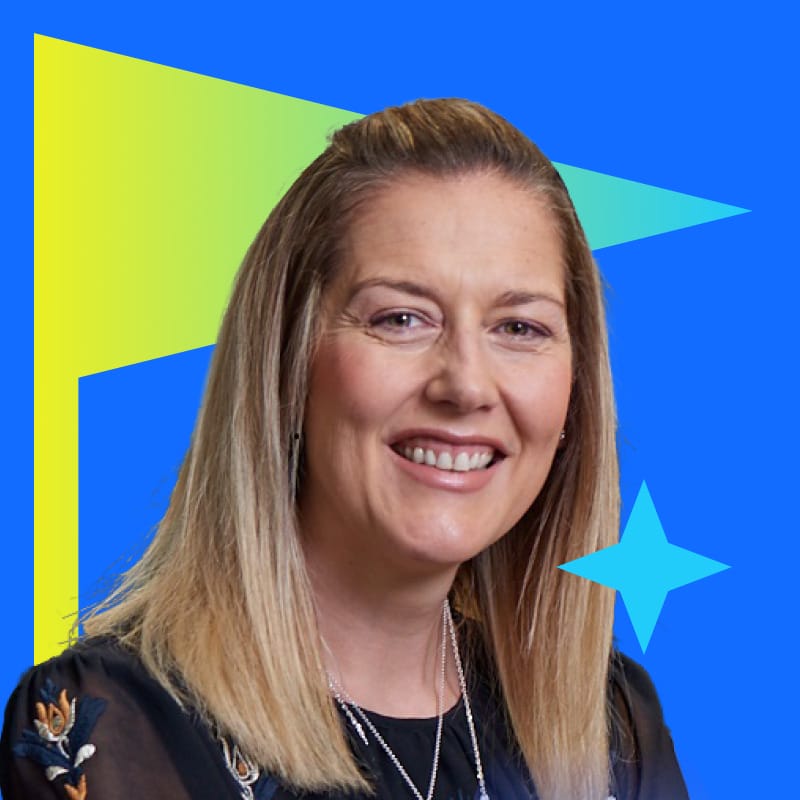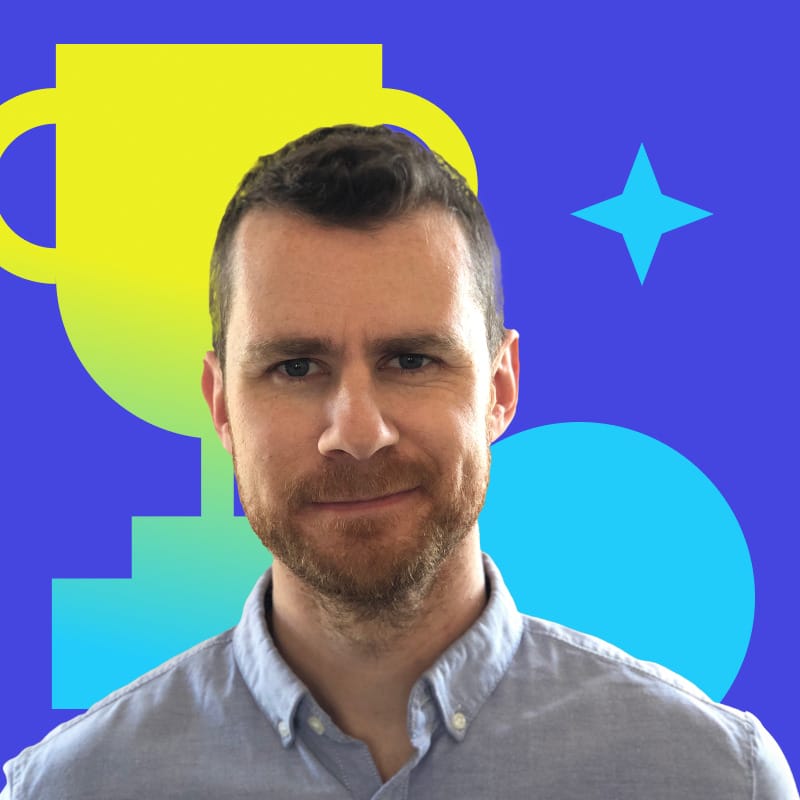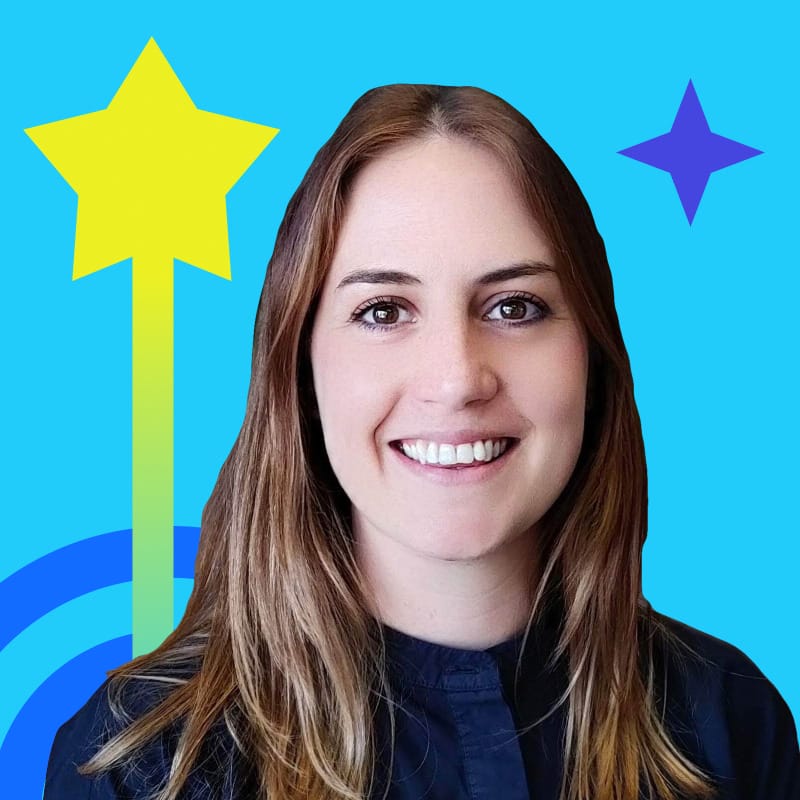The chances are you’re using search and discovery platform Algolia without realising it. Algolia offers search as a service, providing web search for its customers’ websites through an externally hosted search engine. Founded in 2012 and today employing nearly 1,000 people, it’s “the world’s only end-to-end AI search solution”, with big-name customers including Walgreens, Stripe, Slack, Medium, and Zendesk. It’s used by more than 500,000 developers, manages over 1.7 trillion search queries a year, and is the second biggest search engine after Google.
Etienne Martin had been a customer of Algolia before he joined as VP of Products nearly 18 months ago. It was an easy decision to join the company, he says. As AI is mainly used to find information and search is at the centre of most online experiences, he could see that “it’s very much the problem to solve”.
Etienne’s previous experience includes time at travel tech business Amadeus, global fashion search business Lyst, and AI Insurance advisor app Clark.de as a CPO, so he felt he already had a good knowledge of the search space and APIs. He also saw that Algolia didn’t make the mistake of focusing on its tech over its end users like some SaaS organisations. “I knew they had a great team and a lot of smart people doing great things in the AI space,” he says.
An AI expert is included in the product team depending on the problem to be solved, Etienne says. Algolia has a VP of AI who also works closely with Etienne. This VP focuses on the technical challenges of building an AI platform and keeps up-to-date with emerging technologies that might inform decision-making about the Algolia product. Additionally, there are about 30 product people at the company. The makeup of product teams varies, says Etienne, but it might typically consist of a product manager, a UX expert, a researcher, an analyst, an engineering manager, and a data scientist.
He comments that while product people refer to the product trio - product manager, engineer and designer - this trio should really be a quartet with the addition of a data scientist who can understand what data to collect and process and what models to use - in Algolia’s case this is a VP of AI. Etienne also counsels that focusing on the problem to solve is what is important. It doesn’t have to be AI.
"Most innovative projects should not start with AI. Build a prototype first and prove its desirability. AI is expensive, so it’s better to validate ideas by doing things that don’t necessarily scale."
Etienne Martin
Algolia
That said, the Algolia search engine uses a combination of natural language processing and keyword via vector search, and artificial intelligence is employed end-to-end. The experimentation frameworks that a business uses may need to change due to the use of AI in products, he says. AI models require constant iteration with live data which can’t be achieved through traditional prototyping and showing the user experience to customers. He explains: “You need the ability to collect and organise data to be properly baked into your product. This is a challenge for the product manager: how do I collect data to train my model and create a better experience?”
You need a firm foundation to pioneer AI. For Etienne, that means always focusing his teams on problem solving. He has organized each product team around solving customer problems, with clear KPIs and outcomes. These teams are autonomous - their roadmaps and backlogs are centered around the particular problem they're trying to solve.
Etienne points out that a potential downside of autonomous teams is that teams can end up duplicating the work because they don't look at the work being done elsewhere. It leads to a lot of extra work every time the tech stack is updated. “There’s a lot of confusion between the ideas of autonomous teams and independent teams, but ownership of your goal doesn't mean that you have to do everything on your own,” he says. For example, Algolia has a team that creates A/B tests for customers to use. For internal A/B tests, some teams are creating their own solutions. Perhaps there’s a benefit to consolidating this work. He’s now looking at platformisation strategies to improve the tech environment so teams can easily see what components can be shared and worked on across the company.
“
I work closely with the CTO or VP of engineering to figure out our tech strategy. And quite often, in my opinion, the tech strategy is our platformisation strategy.
”
Creating a problem-centric organisational structure is a big focus, says Etienne. The company is growing fast, and since he joined, he has concentrated his efforts on emphasising both a bottom-up and top-down approach to decision-making and empowering the product teams to be autonomous. He has introduced OKRs for example, and ensures that product teams are organised around solving customer problems, with clear KPIs and outcomes, and they build their roadmaps and organise their backlogs around this. “It's a continuous process,” he says. Because the company has grown so quickly, its staff have already seen a lot of change, and are happy to embrace his efforts.












Comments
Join the community
Sign up for free to share your thoughts